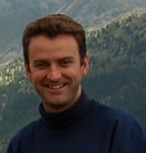DNA reveals the past and future of coral reefs
New DNA techniques are being used to understand how coral reacted to the end of the last ice age in order to better predict how they will cope with current changes to the climate. James Cook Univer

From 2005 to 2022, the main node of the ARC Centre of Excellence for Coral Reef Studies was headquartered at James Cook University in Townsville, Queensland (Australia)








Abstract: I will explore three questions that I regard as central to the further development of ecological and social-ecological theory: (1) How resilient are ecological communities (and their functions and services) to habitat and biodiversity loss? (2) What is the importance of spatial heterogeneity for self-organization in natural resource management situations? and (3) How can we predict and resolve the formation of scale mismatches between the needs of societies, socioeconomic institutions, and ecosystems? Using six examples from diverse study systems, and following a gradient of abstraction that runs from field work through statistics and modelling to deep philosophical hand-waving, I will attempt to demonstrate that spatial elements of complex systems – such as network membership, geographic context, spatial subsidies, upscaling, and edge effects – are integral to the resilience and sustainability of social-ecological systems.
Biography: Graeme Cumming grew up (well, mostly) in Harare, Zimbabwe. He studied Zoology and Entomology to the honours level at Rhodes University in Grahamstown, South Africa, before attending Oxford University, U.K., on a Rhodes Scholarship. While at New College, Oxford, he completed his doctorate on ‘The Evolutionary Ecology of African Ticks’ under the supervision of Drs. Sarah Randolph and David Rogers. From Oxford he moved to the University of Wisconsin-Madison, funded by a D. H. Smith Postdoctoral Fellowship from The Nature Conservancy (TNC), to work with TNC and Professor Steve Carpenter at the Center for Limnology on applying species-based models to management and conservation-related problems in freshwater systems. After two years as a postdoc, he was hired as an Assistant Professor in the Department of Wildlife Ecology and Conservation at the University of Florida. Graeme left UF at the end of 2005 and is currently Pola Pasvolsky Chair in Conservation Biology at the University of Cape Town. He has a wide range of interests, centering around understanding spatial aspects of ecology and the relevance of broad-scale pattern-process dynamics for ecosystem (and social-ecological system) function and resilience. He is also interested in the applications of landscape ecology and complexity theory to conservation and the sustainable management of natural resources.
New DNA techniques are being used to understand how coral reacted to the end of the last ice age in order to better predict how they will cope with current changes to the climate. James Cook Univer
A new study on the effects of climate change in five tropical countries has found fisheries are in more trouble than agriculture, and poor people are in the most danger. Distinguished Profess
James Cook University researchers have found brightly coloured fish are becoming increasingly rare as coral declines, with the phenomenon likely to get worse in the future. Christopher Hemingson, a
Researchers working with stakeholders in the Great Barrier Reef region have come up with ideas on how groups responsible for looking after the reef can operate more effectively when the next bleaching
Abstract: As marine species adapt to climate change, their heat tolerance will likely be under strong selection. Individual variation in heat tolerance and its heritability underpin the potential fo
Abstract: The Reef Ecology Lab in KAUST’s Red Sea Research Center explores many aspects of movement ecology of marine organisms, ranging from adult migrations to intergenerational larval dispersal
Abstract: Macroalgal meadows are a prominent, yet often maligned component of the tropical seascape. Our work at Ningaloo reef in WA demonstrate that canopy forming macroalgae provide habitat for ad
Abstract: Sharks are generally perceived as strong and fearsome animals. With fossils dating back at least 420 million years, sharks are not only majestic top predators but they also outlived dinosa
Abstract: Connectivity plays a vital role in many ecosystems through its effects on fundamental ecological and evolutionary processes. Its consequences for populations and metapopulations have been
Abstract: Evolution of many eukaryotic organisms is affected by interactions with microbes. Microbial symbioses can ultimately reflect host’s diet, habitat range, and even body shape. However, how
Abstract: The past few years have seen unprecedented coral bleaching and mortality on the Great Barrier Reef (GBR) but the consequences of this on biodiversity are not yet known. This talk will expl